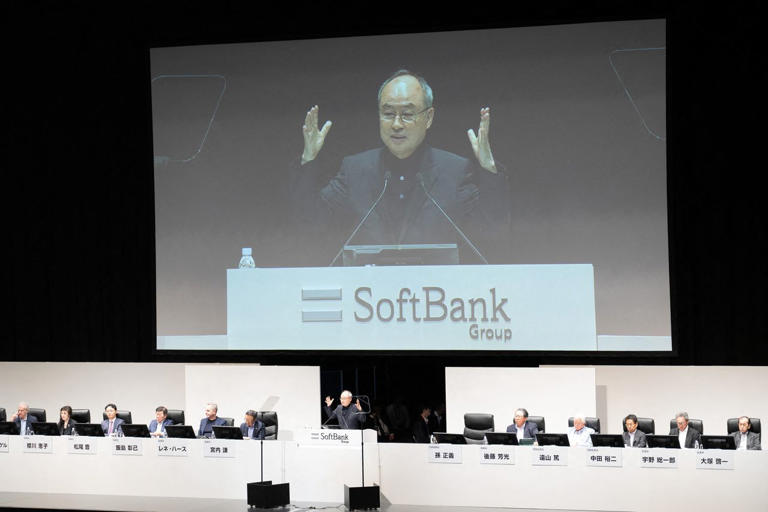Masayoshi Son, the visionary founder of SoftBank Group, candidly shared his reflections and regrets during the company’s annual shareholder meeting in Tokyo, highlighting what he described as a costly oversight: selling off shares in Nvidia before its meteoric rise to becoming one of the world’s most valuable companies.
Known for his bold investments that have reshaped the tech landscape, Son openly admitted, “It’s frustrating to remember the ones that I missed.” He recounted the decision made by SoftBank Vision Fund in 2019 to divest its entire 4.9% stake in Nvidia. At the time, this move appeared strategic, yielding a handsome $3.3 billion profit on SoftBank’s initial $700 million investment. The sale was considered a significant success, providing a substantial return on investment.
However, Son acknowledged the hindsight that Nvidia’s value surged dramatically afterward, fueled by burgeoning demand for its high-performance chips, particularly in artificial intelligence applications. Just this past week, Nvidia briefly eclipsed Microsoft to become the world’s most valuable listed firm, underscoring the missed opportunity for SoftBank.
Had SoftBank retained its Nvidia shares, they would now be valued around $160 billion, representing an unrealized gain of more than $150 billion. Son revealed that he had entertained the idea of integrating Nvidia into his technology conglomerate shortly after SoftBank acquired UK chip designer Arm in 2016. Reflecting on those discussions, Son recalled meeting Nvidia’s CEO, Jensen Huang, at his California home, where he conveyed his vision directly.
“There was one theme: ‘I bought Arm. Now I want to buy you, Nvidia,’” Son recalled, underscoring his ambition to consolidate Nvidia under SoftBank’s umbrella while preserving Huang’s leadership. However, despite their discussions, a deal did not materialize, and Nvidia declined to comment on Son’s reminiscence.
In addition to Nvidia, Son lamented missed opportunities with other potential investments, including OpenAI, which eventually chose to accept an investment from Microsoft instead of SoftBank. Despite these setbacks, Son emphasized that dwelling on missed opportunities serves little purpose in moving forward strategically.
Looking toward the future, Son expressed enduring confidence in SoftBank’s strategic assets, particularly Arm, which has emerged as one of his most successful investments. With SoftBank holding approximately 90% of Arm and its market value reaching $168 billion following its U.S. listing last year, Son reiterated his conviction in Arm’s pivotal role in powering smartphones and advancing AI technologies.
Beyond financial success, Son articulated his broader vision for SoftBank to pioneer advancements in “artificial super intelligence” (ASI). He envisaged ASI as a transformative force that could be 10,000 times smarter than human intelligence, potentially revolutionizing fields from healthcare to global security within the next decade.
Son’s aspirations for SoftBank extend beyond traditional business metrics, emphasizing his commitment to driving technological innovation and societal impact. Despite the regrets over missed investment opportunities, his focus remains unwavering on steering SoftBank toward future growth and leadership in emerging technologies.
As SoftBank continues to navigate the evolving tech landscape under Son’s leadership, his strategic vision underscores a commitment to pushing boundaries and seizing new opportunities that align with his long-term vision for technological advancement and societal benefit.
